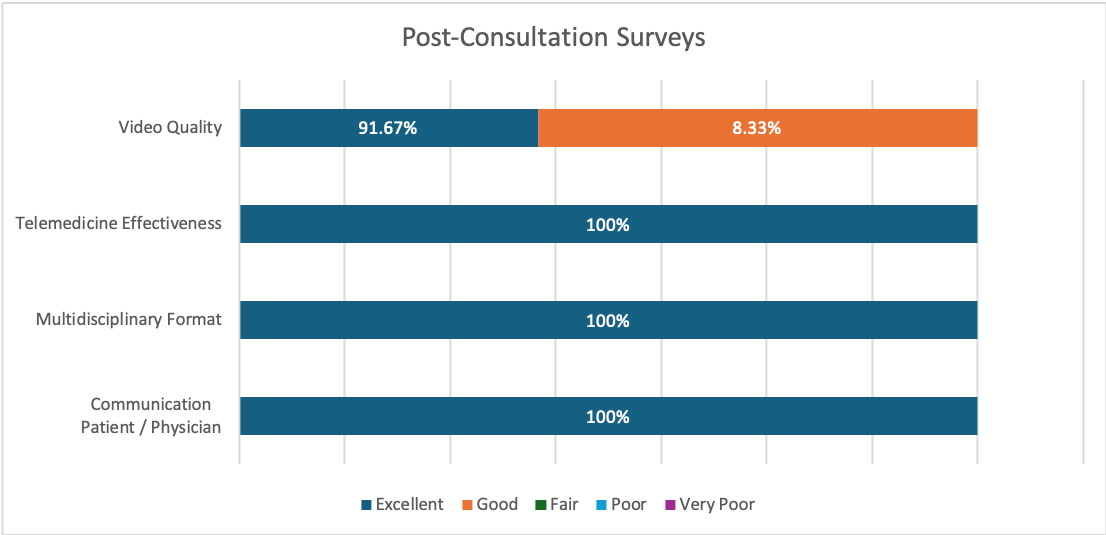Technology 2: Telemedicine
Session: Technology 2: Telemedicine
186 - Evaluation of patient satisfaction after multidisciplinary telemedicine consultations for fetal anomalies
Saturday, April 26, 2025
2:30pm - 4:45pm HST
Publication Number: 186.4710
June Hu, University of Texas Southwestern Medical School, Dallas, TX, United States; Abhishek Makkar, University of Texas Southwestern Medical School, Dallas, TX, United States; Susan Hazel Lazatin, Children’s Health, Grand Prairie, TX, United States; Laura Van Pelt, Children's Health, Arlington, TX, United States; Vanessa Dedmon, Children's Health, Dallas, TX, United States
- JH
June Hu, MD
Assistant Professor of Pediatrics
University of Texas Southwestern Medical School
Dallas, Texas, United States
Presenting Author(s)
Background: Antenatal consultations for fetal anomalies are essential for educating parents, and planning delivery and postnatal care. At our fetal center, these multidisciplinary, time-intensive consultations transitioned to a hybrid model during COVID-19, incorporating telemedicine based on ACOG guidelines to improve maternal access. Post-pandemic, telemedicine usage increased due to superior accessibility. As part of a quality improvement initiative, we created an anonymous questionnaire to evaluate parental satisfaction with virtual multidisciplinary antenatal consultations.
Objective: This project aims to evaluate patient (parental) satisfaction with use of telemedicine for multidisciplinary antenatal consultations.
Design/Methods: This descriptive study evaluates virtual antenatal consultations conducted by one or more pediatric specialists including neonatology at our fetal center from August 2024 to August 2025. Providers were trained on Zoom Pro™, telehealth consent, documentation, and billing practices. Patients, pregnant mothers with fetal anomalies, completed an anonymous 5-point Likert scale survey assessing care quality, communication, and technical aspects. Data was analyzed using descriptive statistics, and a composite consultation quality (CQ) score was generated from survey responses.
Results: Since study inception, there have been 23 fetal consults involving neonatology and one/more other pediatric subspecialist. Patient response rate was 35%. Patient demographics are listed in Table 1. Overall consultation quality was rated good or excellent by 100% of patients (Figure 1). Patient group means computed on six 5-point Likert items about patient-physician communication for video-consult was 30 (max score 30). Parents found multidisciplinary format of these consultations convenient and effective as analyzed on three 5-point Likert scale items, with average score of 5. 100% of patients agreed or strongly agreed that telemedicine consultation was effective, and their combined consultation quality score computed on twelve survey questions was extremely high: M = 59.76.
Conclusion(s): Telemedicine appears to be an accessible and effective way to counsel parents with fetal anomalies. Though one main flaw is the low response rate and potential for biased responses from gratified patients, this study indicates telemedicine can improve access to care, enhance patient satisfaction, and simplify scheduling for multidisciplinary consultations.
Table 1
Table 1.pdfPatient demographics
Figure 1
 Survey results
Survey results 
